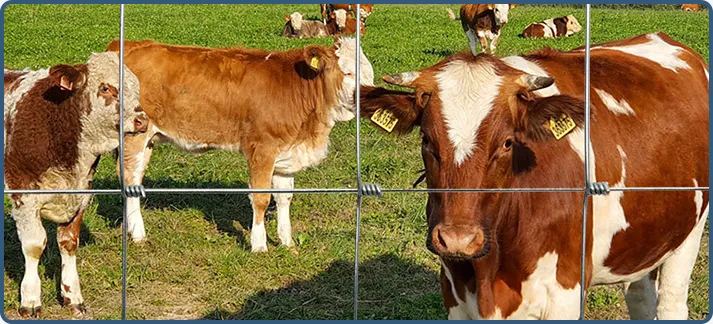Exploring Various Categories of Metal Mesh for Diverse Applications and Industries
Dec . 02, 2024 08:00
Different Types of Metal Mesh
Metal mesh is a versatile material used in numerous applications across various industries. Its unique physical properties make it suitable for tasks ranging from construction to filtration, and security to aesthetics. The types of metal mesh can be broadly classified based on the material used, the method of manufacturing, and the intended application. Here's an overview of the different types of metal mesh and their specific uses.
1. Stainless Steel Mesh
One of the most commonly used types of metal mesh is stainless steel mesh. Known for its resistance to corrosion and high temperatures, stainless steel mesh is ideal for both indoor and outdoor use. Its durability makes it a preferred choice in food processing, pharmaceuticals, and chemical industries. Additionally, stainless steel mesh is often used in architectural applications, including balustrading, facades, and decorative screens. The versatility of stainless steel mesh is further enhanced by its availability in various mesh sizes and finishes, providing designers and engineers with ample options.
2. Aluminum Mesh
Aluminum mesh is lightweight and resistant to corrosion, making it a great choice for applications requiring a balance between strength and weight. It is commonly used in the automotive industry, aerospace applications, and electronic enclosures. Its natural resistance to rust allows it to be used in outdoor environments without the need for additional protective coatings. The aesthetic appeal of aluminum mesh also makes it a favored choice in interior design projects.
Galvanized steel mesh is created by coating mild steel with a layer of zinc to enhance its corrosion resistance. This type of mesh is widely used in construction for reinforcing concrete, safety barriers, and fencing applications. The protective zinc layer offers durability, ensuring that the mesh can withstand harsh environmental conditions. Furthermore, its affordability makes galvanized steel mesh a popular choice for projects with budget considerations.
4. Copper Mesh
different types of metal mesh

Copper mesh is known for its unique properties, including excellent electrical and thermal conductivity. It is primarily used in electrical and electronic applications, such as grounding and shielding. Its antimicrobial properties also make it valuable in HVAC systems and water filtration processes. In addition to its functional uses, copper mesh is increasingly employed in artistic and decorative projects due to its distinctive color and malleability.
5. Expanded Metal Mesh
Expanded metal mesh is produced by cutting and stretching a flat metal sheet, resulting in a rigid, diamond-shaped pattern. This type of mesh is frequently used for security applications, such as window guards, outdoor fencing, and walkways. Its structure provides strength while allowing for ventilation and visibility. Additionally, expanded metal is used in various industrial applications, including equipment protection and as mesh for filtration systems.
6. Woven Wire Mesh
Woven wire mesh is made by interlacing horizontal and vertical wires to create a grid pattern. This type of mesh is extremely versatile and is used across various industries, including agriculture, construction, and automotive manufacturing. Woven wire mesh can be produced in different wire thicknesses and materials, such as stainless steel, aluminum, or copper, tailored to specific requirements.
7. Decorative Metal Mesh
Decorative metal mesh combines functionality with aesthetics, often found in architecture and interior design. This type of mesh may be used in partitions, wall coverings, and ceiling tiles. Its intricate patterns and finishes enhance the visual appeal of spaces while offering benefits such as sound attenuation and light diffusion.
Conclusion
The diversity of metal mesh types reflects its essential role across multiple sectors. From reinforcing structures to performing filtration functions, metal mesh is a crucial material that offers strength, durability, and design flexibility. By understanding the characteristics and applications of different metal meshes, industries can select the most suitable type for their specific needs, ensuring efficiency and effectiveness in their projects. As technology advances, we can only expect new developments in metal mesh applications, expanding its potential uses even further.




















